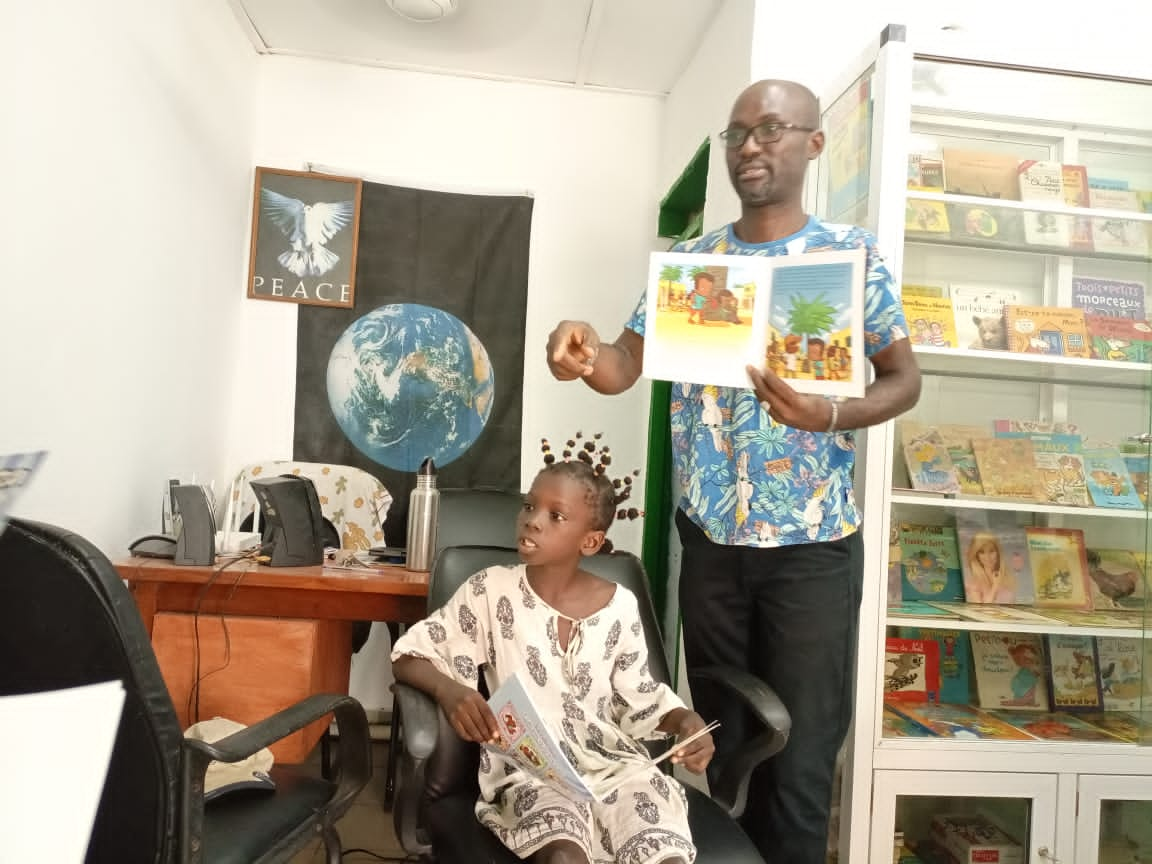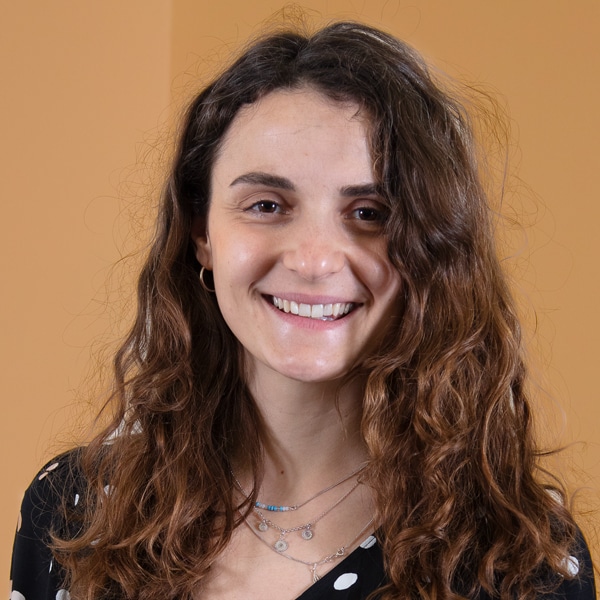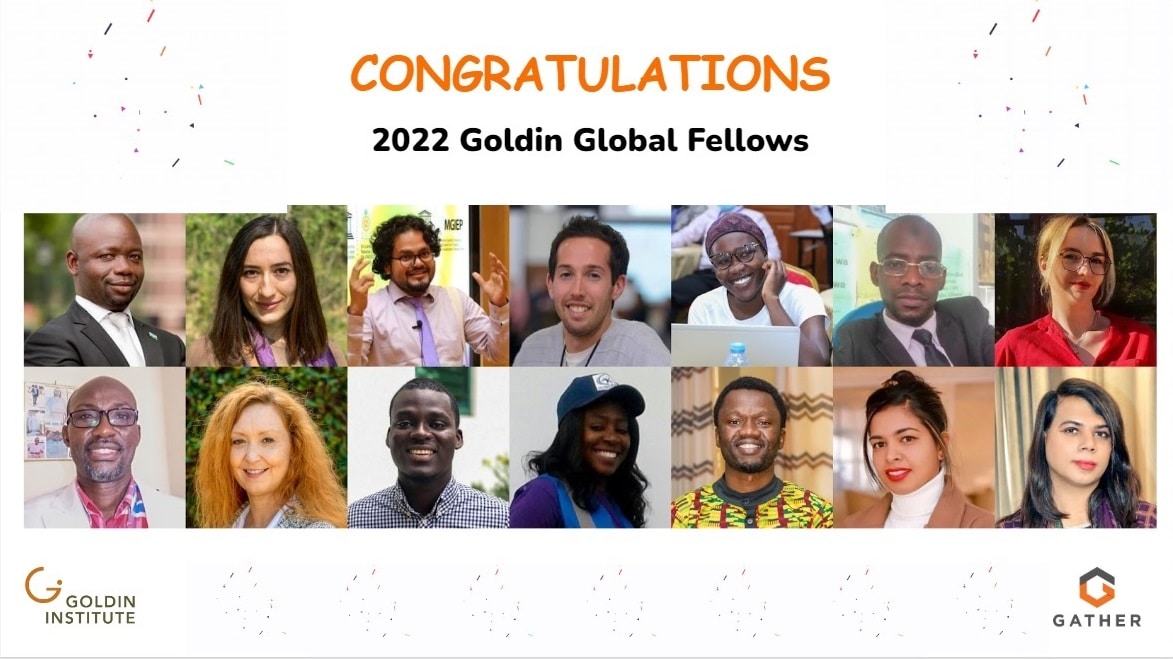Transforming a Barbershop into a Children's Library
One day recently, James Offuh, 2022 Goldin Global Fellow and Founder of United for Peace Against Conflicts International (UFPACI) from Côte d’Ivoire, saw kids playing with his barber tools. Realizing the hazards here, he instead offered them some books as an alternative which saw the creation of his Peace Library Project.
This seemingly random moment created a positive change for the kids in his community, highlighting how we can play our part in creating social change by leveraging the resources we already have. As a result, James, a peace advocate and educator, initiated the Children Transformative Literacy Peace Library Project and contributed to a visioning summit by launching a parenting toolkit in his community.
In this piece, he speaks more about this initiative’s impact on the children and their families, the challenges faced, and the driving inspiration behind this transformative work.
A Library Provides a Safe Space for Children
Before the creation of the peace library, which is entirely free to use, James states that children loitered on the streets, playing harmfully like throwing stones at each other, interacting with abuses like rudeness and arrogance, showing hateful sentiments, and being apathetic to one another.
“In contrast, now major outcomes are that children around my community have found a safe space for learning virtues, values that support good moral behaviors.” he says. Further, he believes – through such initiatives – children are more likely to be exposed to peace, justice, social cohesion, and accountability values “Most importantly children are developing interest in books, learning to read and always visiting the book station as a place of socialization.”
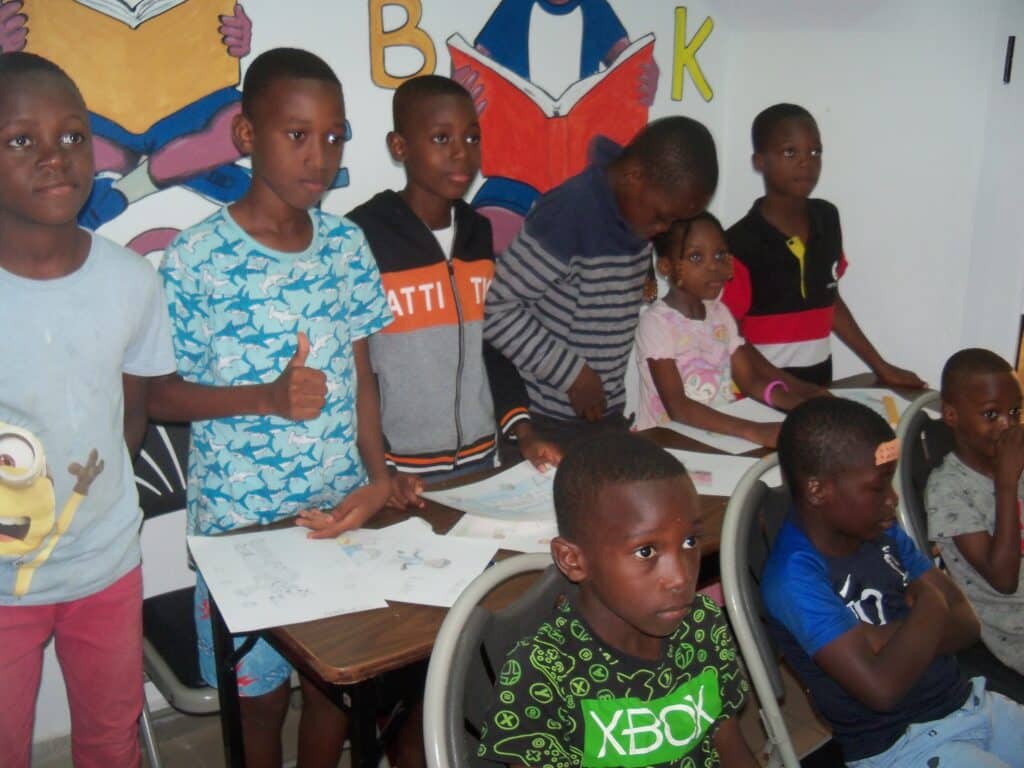
He highlights the role of the ‘Assets Based Community Development’ approach by valuing it as a critical principle to uncover gifts within our community, focusing on what’s “strong” rather than what’s “wrong”.
“When planning a community-driven social change mechanism and action frameworks, such as transforming my barbershop into a community peace library to address early child illiteracy and juvenile crimes, one should pay more attention to the gifts as opposed to deficits in society.”
— James Offuh
James remarks that many children do not have the necessary parenting guidance or resources, which often leads to children and teens getting involved in criminal activities, hard drug deals, and the consumption of marijuana.
This often meant they were sent into juvenile crimes that became alarming in the Abobo town in Abidjan City. James gives a perspective on how this alternative education space outweighs some traditional ways to solve this social problem.
“I discovered that these children, most of them grew up on the streets, had no good moral education background, applying punitive, coercive measures will not solve the problem holistically, as police keep making arrests, imprisonments, etc.“
— James Offuh
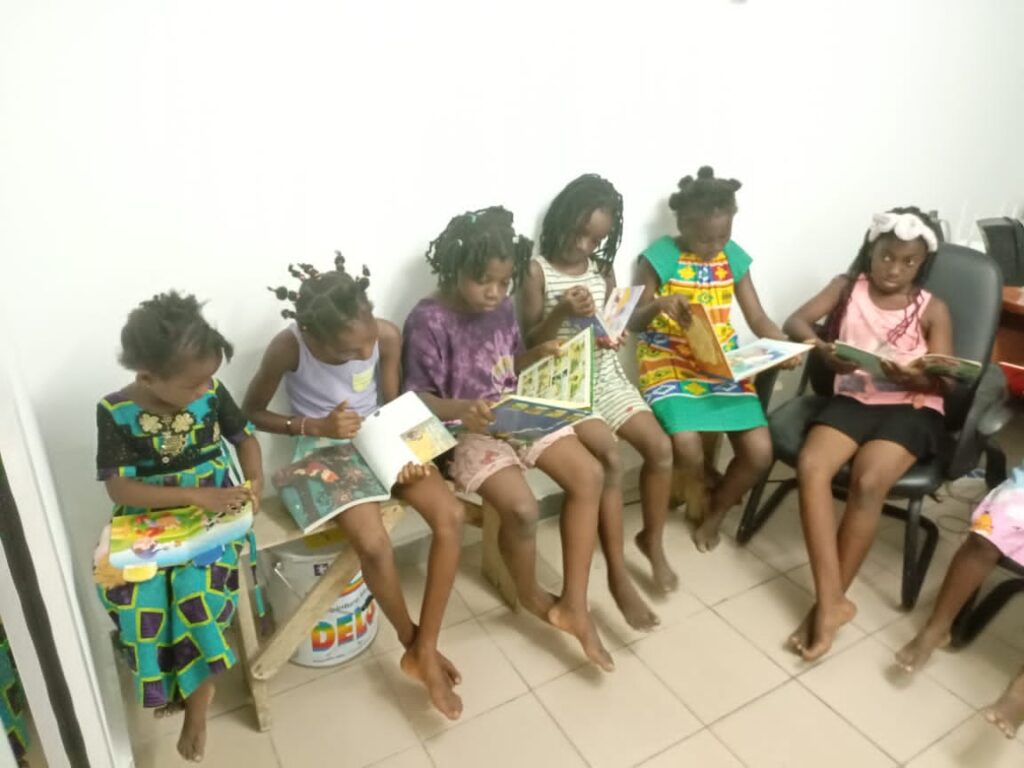
Transformational Peace through Asset Based Community Development
Further, James speaks on how, in his everyday work at the UFPACI, he implements the knowledge gained during his time as a Goldin Global Fellow: “Goldin Institute’s Gather program was an eye-opener to me; before the program, I did not know about the terms ‘ABCD’ approach and Community Driven Social Change action.” Moreover, he recalls how adaptive leadership versus technical leadership helped him understand more conflict sensitivity, analysis, and ‘do no harm’ as a tool for diagnosis over individualistic versus relational context.
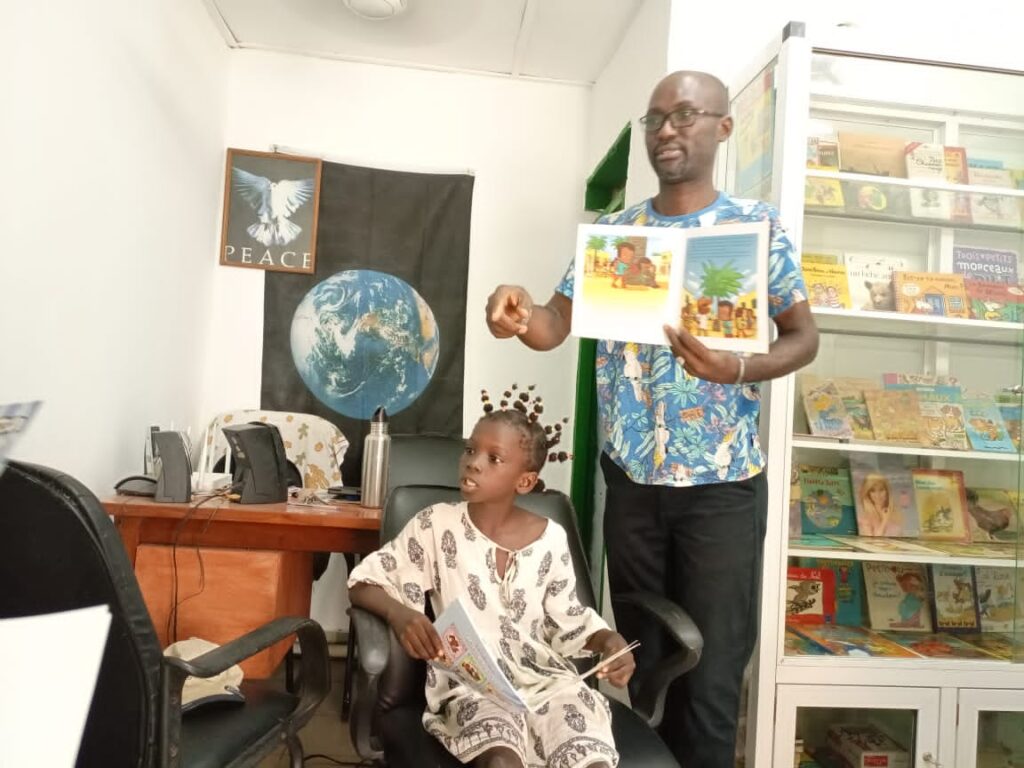
Goldin Institute expanded his global connections, too. “The Gather program expanded my networking, and I got a partner from the U.S.A. who visited me here in Cote d’Ivoire and got my details from the Goldin Institute website. He is also a member of the Gather Global Alumni network.” James also gained free online training workshops, participating recently in Project Management and Strategic Planning, which helped him learn how to design, plan, implement, monitor, and evaluate processes and outcomes.
Conclusively, James leaves us with a saying from Fredrick Douglas:
“It’s easier to build strong children than to repair broken adults.”
With his tireless work and activism at UFPACI, James and his team promote social dialogue, a non-violent culture, and peace reinforcement. Read more about their work and find ways to support them by checking their website: https://ufpacidialogue.net/. You will support the library’s longevity and sustainability so it can serve as many children for as long as possible.
Currently, the library needs infrastructural support like stable internet connectivity, electricity, comfortable reading seats and tables, workshop toolkits like drawing materials, and story books in English and French language.
Our 2022 Global Fellow graduates are stronger together
By Yusuph Masanja, Co-Facilitator of the Global Alumni Network

Since the inaugural cohort of the Goldin Global Fellows in 2018, the Goldin Institute has evolved the GATHER curriculum to remove barriers to access for grassroots leaders and to augment the pedagogy to work for the realities of our Fellows across the globe. One such development was the ability for Fellows to access the curriculum not only on iPads but on any internet-enabled device or smart phone which is most convenient for them. This change removes a significant barrier for Fellows who reside in remote places and lack reliable access to electricity, wifi and the latest gadget or repair services.
As a Facilitator of the program, our intentionality in removing barriers is why I am such an advocate of the GATHER approach. It is how our network of Alumni has grown to 150 Fellows from diverse backgrounds, including those leaders who are often left out of conferences or trainings, who now hail from over 40 countries. And we are confidently making space for more grassroots leaders to join us. The Community of Practice that Fellows continue to build, one cohort at a time, is proof that building change from the assets we have is a path to meaningful and inclusive progress.
This year we saw our third cohort of Fellows embark on the Global Fellows Program. The 2022 Goldin Global Fellows are 14 bold and wise grassroots leaders from across the globe, including Cote d'Ivoire, North Macedonia, the USA, Ghana, Nigeria, Zimbabwe, Nepal, Pakistan, Malawi, Bangladesh, Albania, Sierra Leone, and Kenya. Amidst our diversity, we are united by the desire to learn, reflect and implement proven ideas for community-driven social change in our respective countries.
At the graduation ceremony on 4th November, the 2022 Fellows demonstrated their achievements and shared their aspirations. The ceremony began with a message to all Fellows from the Founder and Board Chair of the institute, Diane Goldin who warmly welcomed the new Fellows to the network:
“I could not be more honored to have the opportunity to know so many talented leaders and know the innovative results. My congratulations for all your work in achieving your goals and for being a part of our global family. You are appreciated and loved.” - Diane Goldin
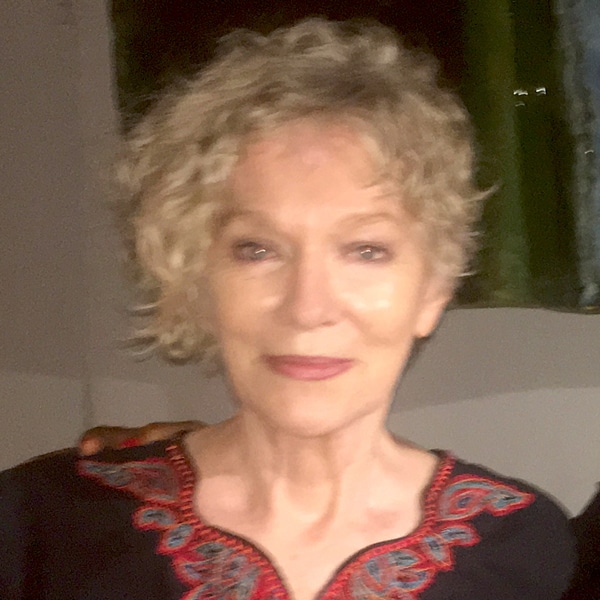
At the graduation, Fellows shared moving testimonies of how their five months through the program transformed their worldviews, their grassroots activism, and brought new friends into their lives. As a Facilitator, this feedback is so rewarding, which keeps me motivated to expand the opportunity for even more community leaders around the world. Here are a few quotes from some Fellows captured from the graduation ceremony:
"The process of assets mapping where we identified people, institutions, connections -- and all things which give us life in our communities -- helped us to see the abundance of resources that can be tapped to make progress." - Abdul Rahman Kowa from Sierra Leone.
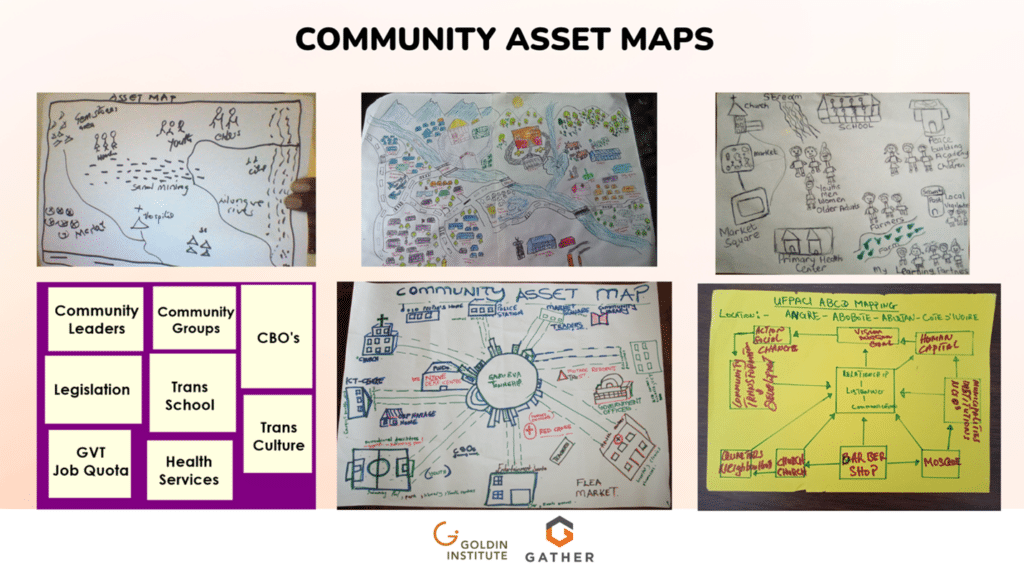
Florence Adhiambo from Kenya shared a great insight from what she learned during the program:
"The GATHER curriculum reminded me that leadership is not a position, but rather a commitment to building partnerships and trust with our fellow community members where everyone is aware that everyone has something to contribute."
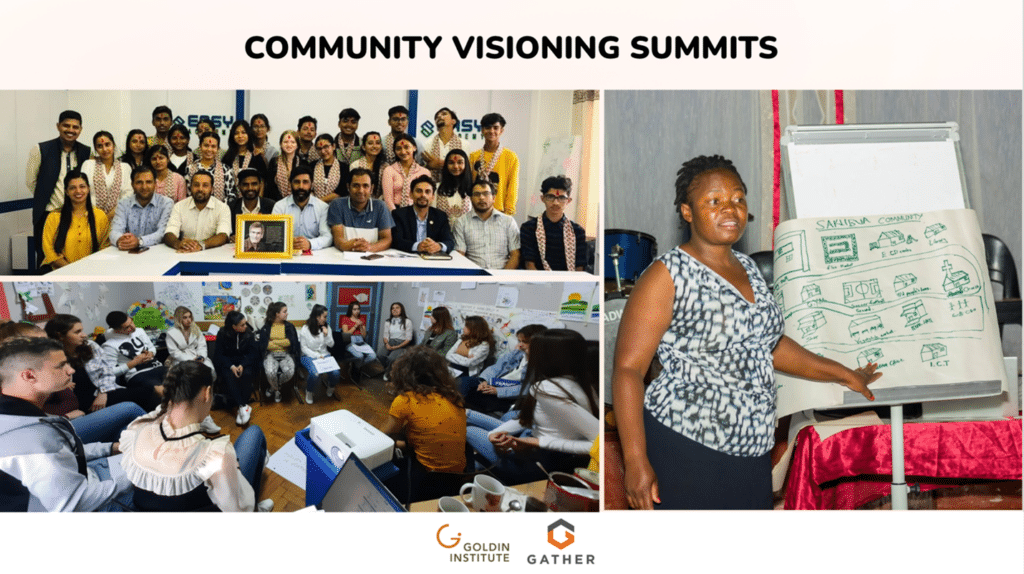
A key element of the curriculum on the GATHER Platform is the hosting of Community Visioning Summits; these allowed Fellows to share assets they have identified with broader community members, and to use appreciative inquiry to discover aspirations and shared priorities with the community. Central to the GATHER curriculum is the capacity for grassroots leaders to involve the voices of those most often left out in regular community processes and actively remove barriers to full participation.
In addition to sharing what they learned, Fellows shared key aspirations and next steps for how to collaborate with neighbors and global peers. In one example, Global Fellow Klementina Dobrevska from North Macedonia shared her next steps for addressing the issue of bullying and violence in schools:
Students who have disabilities are faced with a lot of pressure and bullying. Now we are working to promote children’s rights. So far, we have 500 students on board and in our second Community Visioning Summit we managed to leverage a new tool for youth participation which will allow us to get students’ opinions across the country.
As a final step in the Program, all Fellows partnered with their community members to develop a vision and outline next steps they will take to bring these aspirations to their respective countries. We will be sharing Fellows progress with you in the second edition of this article so that you can better understand and support their efforts. We believe everyone can make a difference no matter how small!
In addition to Fellows sharing their wisdom during the ceremony, they also performed poems, and songs, and led a candlelight ceremony. You can watch the entire recording of the graduation ceremony here.
Before closing, our Executive Director Travis Rejman, virtually presented the Graduation Certificates to each Fellow recognizing their successful completion of the GATHER curriculum and invited them to the Global Alumni Network. Staff members shared their messages of congratulations for the Fellows and Travis Rejman closed the ceremony with the following remarks:
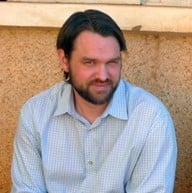
“It’s been an honor to learn together with you over these past 20 weeks. Over the last 20 years, we have been inspiring, connecting, and equipping grassroots leaders around the world so that they can learn from each other and work together to tackle really tough issues that all of our communities are facing. This celebration is a perfect example of what this work looks like in the real world. Thank you all for your dedication and hard work. We are very proud to stand with you and celebrate your accomplishments. We are very excited to welcome you into our global family.” — Travis Rejman.
